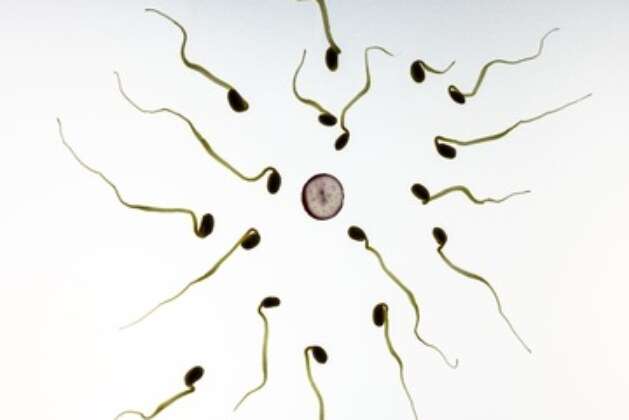Chemical pregnancy, a term that often confuses and concerns many, is a phenomenon deserving attention and understanding. As an expert in reproductive biology, I aim to shed light on this subject, blending scientific accuracy with empathetic insights.

Table of Contents
What is a Chemical Pregnancy?
It refers to a very early pregnancy loss occurring shortly after implantation. Despite being a common occurrence, it often goes unnoticed. It’s crucial to understand that experiencing a chemical pregnancy is a sign that conception is possible.
Early Signs and Symptoms
Typically, chemical pregnancies show symptoms similar to early pregnancy, including:
- Missed period
- Positive pregnancy test
- Mild cramping
- Spotting
However, these symptoms are brief and quickly followed by signs of menstruation.
Causes and Risk Factors
The causes are varied, often rooted in chromosomal abnormalities. Factors increasing the risk include:
- Advanced maternal age
- Hormonal imbalances
- Underlying health conditions
- Lifestyle factors
Emotional Impact and Support
Experiencing a chemical pregnancy can be emotionally challenging. Acknowledging these feelings is vital, and seeking support, whether from loved ones or professionals, is encouraged.
Preventative Measures and Health Tips
While prevention isn’t always possible, maintaining a healthy lifestyle can be beneficial. This includes balanced nutrition, regular exercise, and managing stress.
When to Seek Medical Advice
If you experience recurrent chemical pregnancies or have concerns, it’s essential to consult a healthcare professional. They can provide guidance and support tailored to your individual needs.
Understanding the Medical Perspective
Investigating the Science Behind Chemical Pregnancy
A deeper dive into the science reveals that a chemical pregnancy is essentially a very early miscarriage. The term ‘chemical’ refers to the biochemical markers of pregnancy, like HCG (human chorionic gonadotropin), which are detected in a pregnancy test. This type of pregnancy loss occurs before the embryo can be seen on an ultrasound, typically around the fifth week of pregnancy.
The Role of Genetics and Environment
Research indicates that the majority of chemical pregnancies result from chromosomal abnormalities in the embryo. These abnormalities are usually random and not indicative of a couple’s genetic health. Environmental factors, such as exposure to toxins or certain lifestyle choices, can also play a role, albeit a lesser one.
Navigating the Emotional Terrain
The Grief of a Lost Pregnancy
The emotional response can vary greatly. Some may feel a deep sense of loss and grief, while others may not have developed a strong emotional attachment due to the brevity of the pregnancy. It’s crucial to acknowledge that all responses are valid and deserve compassion.
Seeking and Offering Support
If you or someone you know has experienced a chemical pregnancy, open communication and emotional support are essential. Support groups, either in-person or online, can offer a sense of community and understanding.
Medical Advice and Future Pregnancies
Recurrent Chemical Pregnancies
While a single chemical pregnancy is often a one-time occurrence, recurrent chemical pregnancies may require medical investigation. This could involve genetic testing, hormonal evaluations, or an assessment of uterine health.
Planning for Future Pregnancies
For those looking to conceive again, it’s generally advised to wait until you feel emotionally and physically ready. Most healthcare providers suggest waiting for one or two menstrual cycles to pass before trying again, allowing the body to recover.
Incorporating Lifestyle Changes
Diet and Nutrition
A balanced diet rich in vitamins and minerals is recommended. Foods high in folic acid, such as leafy greens, are particularly beneficial for women trying to conceive.
Exercise and Stress Management
Moderate exercise is beneficial, but it’s important to avoid overly strenuous activities. Practices like yoga and mindfulness can be effective for stress management.
The Road to Recovery
Physical Recovery After a Chemical Pregnancy
Physically, recovery is generally swift as the body has not undergone significant changes. However, it’s important to monitor your health and seek medical advice if you experience unusual symptoms.
Emotional Healing
Emotional healing is deeply personal and varies from one individual to another. Some may find solace in creative outlets or hobbies, while others might prefer talking with a therapist or joining a support group.
Insights from Experts
Consultations with Healthcare Professionals
Consulting with healthcare providers can offer reassurance and clarity. They can guide you on the right time to try for another pregnancy and provide tips on maintaining your health.
Fertility Specialists’ Perspective
Fertility experts emphasize that a chemical pregnancy should not deter couples from trying again. They often regard it as a positive sign that pregnancy is achievable.
Debunking Myths and Misconceptions
Chemical Pregnancy vs. Clinical Pregnancy
It’s important to differentiate between a chemical pregnancy and a clinical pregnancy. A clinical pregnancy is confirmed by visualizing the gestational sac via ultrasound, while a chemical pregnancy is identified only through biochemical markers.
Clearing Common Misconceptions
One common myth is that a chemical pregnancy is an indication of infertility, which is not accurate. Another misconception is that it can be easily prevented, which, given the complexity of human reproduction, is not always the case.
How long does a chemical pregnancy last?
A chemical pregnancy typically ends before the fifth week of pregnancy.
Can lifestyle changes reduce the risk of early pregnancy loss?
While not a guarantee, healthy lifestyle choices may reduce the risk.
Is it necessary to see a doctor after an early pregnancy loss?
It’s advisable to consult a doctor for guidance, especially if you have health concerns or recurrent losses.
How long should I wait before trying to conceive again?
Most doctors recommend waiting one to two menstrual cycles.
Can a chemical pregnancy be a sign of fertility issues?
A single chemical pregnancy is usually not a sign of fertility issues. However, recurrent cases may require medical evaluation.
Are there specific tests for chemical pregnancies?
Chemical pregnancies are typically identified through pregnancy tests and subsequent blood tests.
How can I support someone who has had a chemical pregnancy?
Offer a listening ear, validate their feelings, and encourage them to seek professional support if needed.
Can chemical pregnancies be prevented?
While not entirely preventable, maintaining overall health can be beneficial.
What are the long-term effects of a chemical pregnancy?
There are usually no long-term physical effects, but emotional impacts may vary.
Should I change my lifestyle after a chemical pregnancy?
It’s a good opportunity to assess and possibly improve your lifestyle choices for overall health.
Conclusion:
Understanding chemical pregnancy is crucial for those on their reproductive journey. While it can be a challenging experience. Navigating the complexities can be challenging, but understanding and support are key. Remember, it’s a common experience that many go through, and it doesn’t diminish the possibility of a successful pregnancy in the future. For more expert insights and guidance, [Pregguru] offers a wealth of information.




Leave a comment